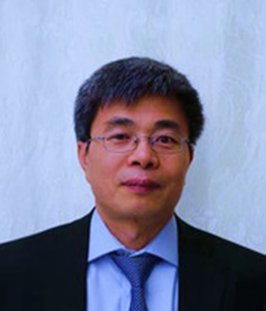(Lecture, April. 18) Advanced Fuel Cells and Hydrogen Production from Seawater Electrolyser as Green Energy Technologies
Title: Research Progress on Safety Prevention and Control Technology for Thermal Runaway of Energy Storage Batteries
Speaker: Prof. Wen-Feng Lin ( Loughborough University, UK)
Time: April 18, 2024 14:30-15:30
Venue: Conference Room 214, Building 16
[Abstract]
Catalyst materials, electrode/electrolyte interfaces and electrocatalysis play key roles in electrochemical energy conversion technologies such as fuel cells and water/seawater electrolysis for green hydrogen production. Advanced liquid fuel cells such as direct methanol/(bio-)ethanol fuel cells have been regarded as a promising alternative for the power supply for portable and automotive applications thanks to their simplicity of using directly liquid fuels in the feed. The fundamental key challenge in the advanced direct fuel cell and seawater electrolyser is to rationally design efficient, stable and low-cost catalyst and electrode materials. An insight into the structure-reactivity and structure-selectivity relationships is the prerequisite to the effective design of the desirable high-performance electrocatalysts. In this talk, recent progress on the development of low-cost electrocatalysts for both advanced direct liquid fuel cells and seawater electrolyser for green hydrogen production will be reported. Fundamental studies have been performed, employing combined electrochemical in-situ FTIR spectroscopy and density functional theory (DFT) atomistic modeling, to understand the reaction mechanism and structure-reactivity relationships of a series of low-cost model and practical nano-catalysts, unsupported and supported on various substrates such as oxides and carbides. The effects of supports and electrode structures on catalyst layers towards liquid fuel oxidation and seawater splitting reactions (hydrogen evolution reaction and oxygen evolution reaction) have been demonstrated.
[Biography]

Prof. Wenfeng Lin is the Special Envoy for East Asia at Loughborough University, Head of Research in the Department of Chemical Engineering, Tenured Chair Professor of Chemical Engineering, Fellow of the Royal Society of Chemistry (RSC), and Principal Investigator of the Engineering and Physical Research Foundation (EPSRC) in the UK. During his PhD studies at Xiamen University, Prof. Lin, under the guidance of academicians Tian Zhaowu, Sun Shigang and Tian Zhongqun, made outstanding pioneering research combining exploratory spectroscopic electrochemistry and quantum electrochemistry, and achieved a series of innovations in the fields of energy electrocatalysis and fuel cells. Prof. Lin has co-authored a number of high-level, highly cited original research papers with Nobel Laureate in Chemistry, Prof. Gerhard Ertl, with funding from the Humboldt Foundation and the Max Planck Society in Germany. Prof. Lin has profound attainments in basic science and engineering applications such as hydrogen production from seawater, hydrogen energy applications, advanced fuel cells, energy electrocatalysis, high temperature in-situ infrared technology, etc. He also has a forward-looking strategic vision on cutting-edge basic research, technological development, and engineering applications in the multidisciplinary fields of low carbon energy chemistry, chemical engineering and materials, and has been awarded numerous grants from the UK and the European Union for innovation and key projects.
Announced by School of Chemistry and Chemical Engineering
